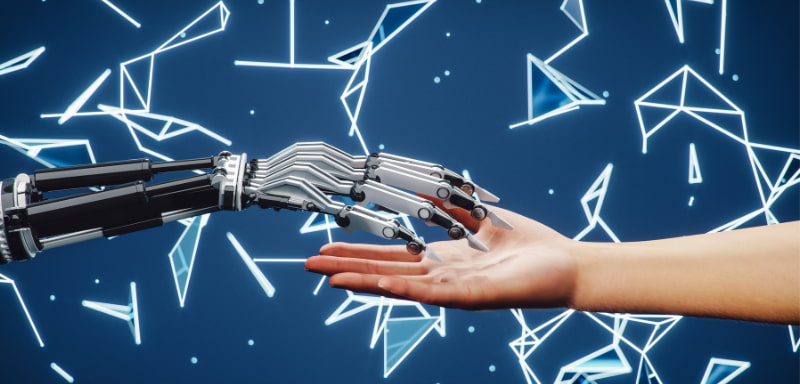From Screening to Onboarding: How AI Shapes Modern Recruitment

Artificial Intelligence is changing recruitment by automating many hiring tasks that used to take a lot of time and effort.
From finding candidates to screening resumes and even conducting interviews, AI tools help you reach more people faster and make smarter decisions without human bias.
AI is not just helping recruiters anymore—it is becoming the main driver of the entire hiring process.
Key Takeaways
- AI speeds up hiring by automating repetitive recruitment tasks.
- Data-driven insights improve candidate matching and selection.
- AI enhances onboarding and supports fair hiring practices.
AI’s Core Impact on Modern Recruitment
Artificial intelligence is reshaping how you find, assess, and select candidates. It moves recruitment beyond basic automation to smart, data-driven processes that improve efficiency and reduce bias.
Your hiring can be faster and more precise by using tools powered by machine learning and predictive analytics.
Redefining Talent Acquisition with AI-Driven Strategies
AI changes talent acquisition by automating steps you once handled manually.
It scans vast talent pools worldwide, matching candidates to roles based on skills, experience, and potential. Instead of waiting for applicants, AI tools can actively source passive candidates who fit your company’s needs.
You benefit from AI-generated job descriptions that adapt to market trends, attracting the right applicants.
These systems also improve employer branding by analyzing data from social media and candidate feedback. This helps you reach better candidates faster and with less effort.
From Manual Screening to Automated Candidate Matching
Screening resumes used to take hours, but AI lets you process thousands in seconds.
Machine learning models extract key skills and rank candidates objectively, removing human bias. Your shortlist will focus on quality matches rather than volume.
AI also integrates behavioral assessments and psychometric tests, analyzing patterns to predict candidate success.
Video interviews can be AI-assisted, evaluating tone and facial expressions to add depth to candidate profiles. This reduces your workload and speeds up decision-making.
Enhanced Data-Driven Decision Making in Hiring
Predictive analytics helps you forecast hiring needs and spot skill gaps before they affect your business. AI tools analyze workforce data to plan for future roles, making recruitment proactive, not reactive.
When making hiring decisions, AI offers insights on candidate fit beyond resumes, including cultural compatibility and performance potential.
You can also track early employee success and adjust onboarding or training accordingly.
The data-driven approach means your decisions are based on measurable facts, not guesswork, improving quality and reducing turnover.
Key Technologies and Tools Shaping AI Recruitment
AI recruitment relies on several key technologies that work together to improve efficiency and decision-making in hiring.
These tools help you automate repetitive tasks, engage candidates effectively, and predict the best fits for your roles.
AI-Powered Platforms and Applicant Tracking Systems
AI-powered platforms, including advanced applicant tracking systems (ATS), are central to modern recruitment.
These systems use machine learning to parse resumes, extract skills, and rank candidates based on job fit.
An effective ATS integrates with your existing HR software and automates processes like resume screening and candidate scoring. Solutions like Eightfold and SeekOut offer AI-driven talent search, helping you tap into large databases and internal talent pools.
With these platforms, you can reduce manual workload and improve the quality of your shortlists.
Many also provide analytics dashboards to monitor time-to-hire, source effectiveness, and diversity goals, helping you make data-backed recruitment decisions.
Applications of Chatbots and Conversational AI
AI chatbots are changing how you engage candidates from initial contact to interview scheduling.
These chatbots provide 24/7 support, answer FAQs, and guide applicants through the process, which improves candidate experience and reduces drop-off.
Conversational AI personalizes communication by tailoring responses based on candidate profiles and job criteria. This personalization keeps candidates engaged and boosts application completion rates.
Popular tools like HireVue and custom AI chatbots can handle thousands of queries simultaneously, freeing your recruiters from routine messaging.
You’ll also gain insights from chatbot interactions to better understand candidate concerns and preferences.
Automated Interview Scheduling and Video Assessments
Automated interview scheduling tools remove the hassle of back-and-forth communication. They sync with calendars and allow candidates to self-select convenient slots, speeding up the process and minimizing delays.
Video assessment platforms combine AI with computer vision and speech analytics to evaluate candidates remotely.
These tools analyze verbal responses, facial expressions, and tone to provide objective insights about communication skills and cultural fit.
Solutions such as Harver and Pymetrics offer these capabilities, enabling you to conduct fair and consistent interviews at scale. They also integrate with ATSs for seamless progression from screening to selection.
Generative AI and Predictive Hiring Innovations
Generative AI is shaping recruitment by creating dynamic job descriptions and personalized outreach messages based on role requirements and candidate profiles. This helps you attract more qualified applicants effectively.
Predictive hiring uses AI models to forecast candidate success by analyzing historical performance and engagement data.
This lets you prioritize applicants with the best chances of thriving in the role.
Tools integrating generative AI and predictive analytics help you optimize hiring metrics like retention and performance.
They allow your team to focus on strategic decisions while AI manages routine forecasting and candidate communication.
Transforming the Candidate Experience
You can use AI to make recruitment smoother and more personalized for candidates.
It helps communicate faster, matches candidates better with roles, and supports building fair and diverse talent pools. These improvements also enhance your employer brand and boost candidate satisfaction.
Personalized Communication and Automated Engagement
AI allows you to send tailored messages based on a candidate’s skills and behavior.
Automated communication tools can respond to questions quickly and keep candidates updated throughout the process. This reduces delays and makes candidates feel valued.
Using AI-powered chatbots or virtual agents, you can answer complex queries and guide candidates during applications.
Automated follow-ups help maintain interest without extra manual work. Your candidate screening becomes more efficient because you focus on aligned applications.
Improving Satisfaction and Retention with AI Insights
AI gathers data on candidate preferences and hiring outcomes. You can then adjust recruiting strategies to attract better cultural fits and improve overall quality of hire.
Personalized experiences, such as showing relevant job summaries, help candidates understand roles better and apply with confidence.
This tech also tracks engagement and identifies points where candidates drop off. You can fix those issues to reduce frustration.
Satisfied candidates are more likely to stay engaged with your employer brand and accept offers, improving retention.
Building Diverse and Inclusive Talent Pipelines
AI supports unbiased candidate sourcing by anonymizing applications and focusing on skills and fit rather than demographics.
It helps expand your talent pipeline by recommending candidates from varied backgrounds you might miss otherwise.
Using data-driven insights, you can actively seek diversity without sacrificing quality. This promotes fairness in screening and assessment.
A diverse talent pool strengthens your organization’s culture and ability to innovate while aligning with inclusion goals.
Human-AI Collaboration and Future Trends
You will see recruitment evolving as AI handles routine tasks while humans focus on deeper assessments.
Your role will involve managing AI tools alongside developing skills like emotional intelligence. Ethical rules and legal limits will shape how you use AI in hiring.
Balancing Automation with Emotional Intelligence
AI can quickly screen resumes and analyze hiring data, saving you time. But only you can judge cultural fit and communication style.
Emotional intelligence lets you understand candidates’ motivations and ensure fair treatment.
Use AI to highlight key skills and flag red flags, then apply your judgment for deeper evaluation. This balance helps avoid over-reliance on automated decisions, which might miss subtle but important human qualities.
In your talent acquisition jobs, combining AI insights with your intuition creates a recruitment ecosystem focused on quality hires and positive candidate experiences.
Ethical, Legal, and Regulatory Considerations
When adopting AI in HR, you must follow laws about privacy and fairness. AI models can unintentionally show bias if your data isn’t diverse. Keep monitoring AI decisions to ensure they don’t unfairly exclude any group.
Transparency is key. Let candidates know when AI tools are used and how their data is handled. This builds trust and aligns your hiring strategy with legal and ethical standards.
You may need to work with legal teams to update policies regularly as AI regulations evolve in the future of recruiting.
Upskilling Recruiters for an AI-Driven Future
Your skills need to evolve to work effectively with AI. Learn to interpret AI-generated reports and combine that information with people analytics.
Training in AI tools and emotional intelligence will make you more effective in identifying top talent. Develop critical thinking to challenge AI results when needed.
Upskilling keeps your role relevant as automation grows and helps you lead the change in your recruitment ecosystem responsibly. This is essential for HR leaders driving AI adoption while maintaining human oversight.
Trending Topics

How to Get an Office Assistant Job – Even with No Experience
Discover the skills, tools, and steps you need to get hired as an office assistant in South Africa—even without formal experience.
Keep Reading
Job Interviews: How to Handle Difficult Questions
Learn how to handle difficult job interview questions with confidence. From preparation to follow-up, rock your next interview!
Keep Reading
How to Answer ‘Tell Me About Yourself’ Effectively in Job Interviews
Nail the most common interview question with a short, smart answer that shows your value and personality — without sounding rehearsed.
Keep ReadingYou may also like

How to Explain Employment Gaps Clearly and Confidently
Got a gap in your CV? No stress. Learn smart, honest ways to explain career breaks in a way that highlights growth, not setbacks.
Keep Reading
What Does a Cashier Do: Key Responsibilities and Daily Tasks Explained
Cashier jobs are a great way to start working. Learn what the job involves and the skills you’ll need to work in shops and fast food outlets.
Keep Reading
Best AI Tools for Resumes and Portfolios: Top Picks & Key Features
AI-powered resume and portfolio tools help you create professional applications faster. Discover the top platforms for job seekers.
Keep Reading